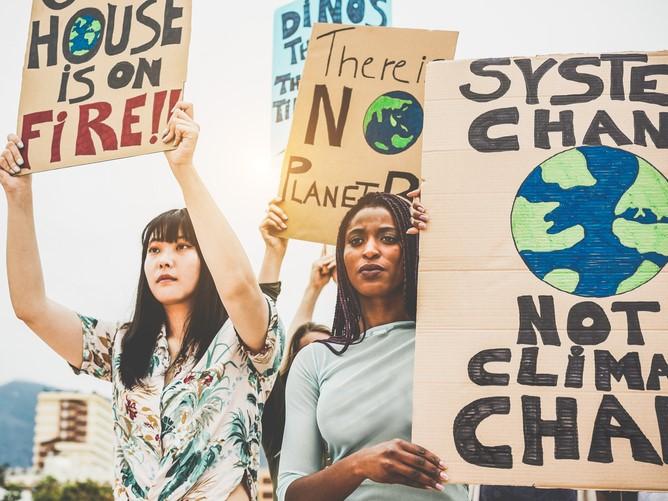
To offset or not to offset – that is the question
Carbon offsetting is a hotly debated issue, with critics positing that it distracts from real efforts to reduce emissions. David Duncan explains why a compromise position in which offsetting is used to complement focused efforts at carbon reduction may be needed

Of all the strategic challenges facing universities at present, arguably none is more important than climate change. Across the sector, there is near universal acceptance that universities ought to be taking a lead. Urged on by student opinion – with radical voices often the loudest – and by concerned members of staff, institutions have signed up to pledges, taken strategies to governing bodies and made announcements about their unique contributions. The public discourse can at times sound like platitudes but beneath the fine words there is a growing sense of urgency and resolve among senior management and governing bodies in the UK higher education sector.
For our part, the University of Glasgow has committed to achieving net zero carbon neutrality by 2030; the original draft said 2035 – academic staff and student representatives argued this was not good enough and demanded a more ambitious target. We have earmarked significant funds to achieve this goal and aim to focus on more effective use of space, more efficient buildings and alternative sources of energy. On the latter, the current focus is a treatment plant, close to the university, which has the potential to produce energy from what might delicately be termed a common human by-product.
- THE Campus spotlight: Universities’ role in the climate change battle
- For the common good: why we need ecological universities
- Accelerating towards net zero emissions: how to mobilise your university on climate action
The optimistic among us are more hopeful about achieving our target than we were three years ago. The change in working habits since Covid means we can assume a 40 per cent reduction in commuting; we are positing a 50 per cent reduction in business travel as people become more discerning about the number of long-distance journeys they undertake. Add to that the impact of electric vehicles, which could really start to show over the next decade, and we can see our way to the finishing line before the self-imposed deadline.
So far, so good – but even with favourable conditions, our efforts at carbon reduction, based on a putative current carbon footprint of 60,000 tonnes of CO2 per year, will only take us down to an annual footprint of around 27,000 tonnes – and that is assuming the university does not experience the swift growth it has seen in the past five years. The balance of carbon, so the thinking goes, will have to be offset.
Carbon offsetting is surely one of the most fraught and hotly debated issues in the field of environmental sustainability. On the one hand, a growing number of companies are active in the marketplace, keen to persuade firms not only of the merits of offsetting but also to use their services to achieve it. This from one leading company’s website:
“Carbon offsetting funds solutions to reducing carbon emissions now. Frequently carbon offsetting reduces emissions much faster than you can as an individual/single company. Carbon offsetting projects help to combat global climate change as well as caring for local communities. In many instances providing much needed employment, health improvement, biodiversity, reforestation and broad social benefits to impoverished communities.”
On the other hand, there are many in higher education who subscribe to the Greenpeace view – that offsetting is at best a diversion and at worst, actively harmful. To quote one recent piece:
“Offsetting projects simply don’t deliver what we need – a reduction in the carbon emissions entering the atmosphere. Instead, they’re a distraction from the real solutions to climate change.”
We are likely to take a compromise position. Universities should not use offsetting as an easy way out – an excuse for inactivity or failure to tackle some of the really big estates or behavioural changes we ought to implement. We should and will do everything we can to shrink our carbon footprint to the minimum and then offset the balance. But we should not wait till the eleventh hour before beginning to offset – rather, we will experiment with various schemes so that we can find the right balance between direct action such as reforestation projects on our own land, large-scale collaborative offsetting projects with reputable partners, and carbon capture. We will also commit our extensive academic expertise to the refinement of carbon offsetting schemes and evaluating their impact over time.
A major challenge for universities is finding sound off-setting partners we can rely on. Fortunately, the not-for-profit Environmental Association of Universities and Colleges (EAUC) has stepped up, forming a Carbon Coalition to which UK and Irish higher education institutions and further education colleges can subscribe through a procurement-friendly Dynamic Purchasing System. Following a successful pilot last year, the Carbon Coalition offers a menu of quality-checked, sustainable and cost-effective carbon reduction and offsetting options that institutions can buy into; crucially, the EAUC’s approach is robust, ethical and transparent, so we can be sure that our investments are achieving their stated goal. The menu includes carbon reduction activities such as renewable energy projects, carbon removal initiatives such as reforestation, and carbon capture of harmful emissions from industry. Full details are available on the EAUC website.
Joining the Carbon Coalition gives universities a route to achieving net zero carbon by 2030. It is not our first choice, but we see it as part of the mix to reach our target. At the same time, we will focus on the things that really matter – taking active, progressive steps to reduce our footprint, while contributing to the wider tasks of research, education and awareness-raising. Working together in a coalition for the planet, we can have real, lasting impact, for the benefit of the whole world.
David Duncan is chief operating officer and university secretary at the University of Glasgow, where he co-chairs the Sustainability Working Group. He is a board member of the Environmental Association of Universities and Colleges.
If you found this interesting and want advice and insight from academics and university staff delivered direct to your inbox each week, sign up for the THE Campus newsletter.


